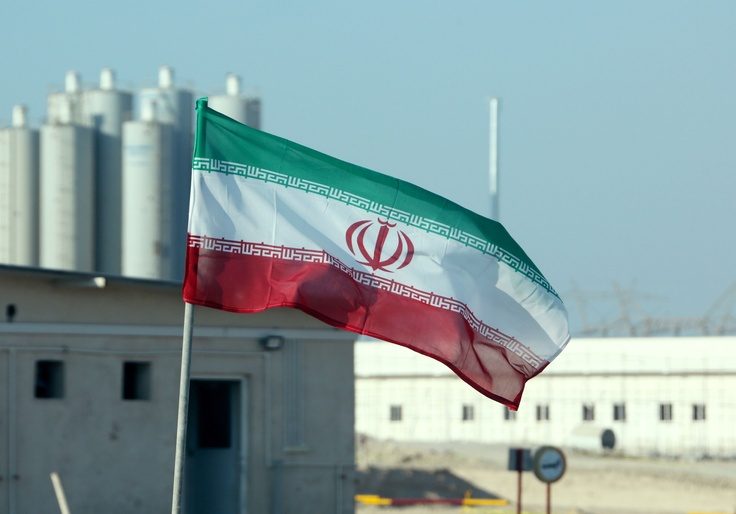Iran's stockpiling of highly enriched uranium is raising new questions about the scope of its undisclosed nuclear work and the efficacy of soon-to-be-lifted restrictions on its missile program, which develops the primary vehicle to carry a nuclear payload, U.S. officials told the Washington Free Beacon.
Iran has been blocking inspectors from the International Atomic Energy Agency (IAEA) from accessing key sites that the watchdog group has cited for having traces of undisclosed nuclear materials, fueling speculation that Tehran is again engaged in the secret construction of nuclear weapons-grade material.
Recently installed IAEA chief Rafael Grossi took the unprecedented step this week of going public about Iran's intransigence, telling Reuters on Tuesday the Islamic Republic is not living up to multiple commitments under the landmark nuclear accord.
"We have insisted and despite all our efforts we have not been able to get that [access], so the situation requires on my part such a step because what this means is that Iran is curtailing the ability of the agency to do its work," Grossi said.
While the Trump administration removed the United States from the Iran nuclear deal in May 2018, administration officials maintain they can still petition the United Nations Security Council for a "snapback" of all international sanctions lifted under the accord, which still counts several European countries as members.
The administration's long-awaited decision on snapback has emerged as a flashpoint ahead of the lifting of a U.N. embargo on Iran's missile program in October. If the U.N. ban is lifted on Iran's missile program, which includes medium and long-range ballistic missiles capable of carrying a nuclear payload, Iran will be free to purchase a range of offensive weapons that will further embolden its power grab across the Middle East, U.S. officials warn.
Already, Russia has signaled that it will stand in the way of Trump administration efforts to maintain the arms embargo, setting the stage for a showdown at the U.N. over the embargo and sanctions snapback.
State Department officials told the Free Beacon that Russia is taking a significant risk with its position, which could spark a massive arms race across the Middle East and throw the region into further chaos.
"Failure to extend the U.N. ban on Iran's ability to buy and sell advanced weapons will lead to an escalating arms race in the Middle East," a State Department official, speaking only on background about the situation, told the Free Beacon on Wednesday. "That should worry every nation, including Russia."
If Russia and other traditional foes such as China buck the United States on the arms embargo, the Trump administration may be forced to invoke snapback, a failsafe mechanism built into the nuclear accord that permits nations involved to unilaterally reapply all of the international sanctions lifted as part of the deal.
Secretary of State Mike Pompeo told the Free Beacon late last month that he and the president are undecided on the issue of snapback. However, if the arms embargo is set to be lifted, the Trump administration may be forced to invoke snapback as a last-ditch effort to keep sanctions on Iran in place.
Sen. Jim Risch (R., Idaho), chair of the Senate Foreign Relations Committee, told the Free Beacon that the Trump administration should not hesitate to initiate sanctions snapback at the U.N.
"It would be foolish to expect that any amount of unconditional sanctions relief would change Iran's behavior," Risch said in his first comments since the IAEA's bombshell disclosure. "Yesterday's report from the IAEA, the U.N.'s nuclear watchdog, should give the U.N. cause to trigger a full snapback of sanctions. There is no reason to trust Iran and reward their bad and dangerous behavior. It is also no surprise to see Russia undermining our efforts at the U.N. on this issue—the Russians have always played on both sides of this matter and this is just one more example of that conduct."
Risch, in a separate statement on the IAEA's findings, said it has now become clear Iran is flagrantly violating restrictions on the amount of enriched uranium it can produce.
"This report affirms what many of us have long suspected—the Iranian regime is violating legally binding obligations and commitments," Risch said. "I applaud the IAEA's ongoing efforts to push Iran to fulfill its nonproliferation obligations and I urge Iran to fully cooperate with the IAEA, reverse its recent nuclear activities, and accept the invitation from the Trump administration to begin talks."
